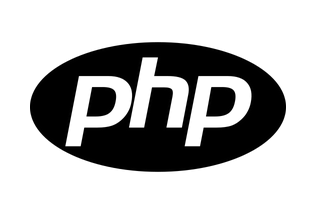
What is PHP?
PHP (PHP: Hypertext Preprocessor) was designed to create dynamic websites. It is commonly associated with a database for its operation. It is also an interpreted and an object oriented language. Founded in 1994 by Rasmus Lerdorf, PHP has enabled the creation of popular websites like Wikipedia, Facebook. It is considered to be the basis for creating dynamic websites and also web applications. In PHP web hosting, it is a language executed on the server side. When a client requests a web page, they will not see PHP code there, but the result of the execution of that code by the server.
How does a PHP function?
In the traditional case of communication with a web server not using PHP (page without PHP), the communication steps are as follows:
- Firstly, The user enters the URL (Uniform Resource Locator) of the page he wishes to consult in his browser;
- Then, browser sends this request to the web server where the page is located via an HTTP request;
- This server uses Apache software to process HTTP requests, understands the request and sends the desired page to the browser;
- Finally, the browser interprets the different languages contained in the page (HTML, JavaScript, CSS, etc.) and displays the page.
In PHP web hosting, the communication is a little different, but remains transparent to the user.
- The browser sends the user’s request to the server;
- Then the server via Apache searches its tree structure if the file exists. If the file exists, the web server transmits it to the PHP engine included in the server;
- The PHP engine analyzes and executes PHP code. If the code contains requests to a database, PHP sends the SQL request. The database returns the desired information to the script to use it (to display it for example);
- PHP continues its analysis and execution of the page and returns to the web server a file without PHP code;
- The web server finally sends a file that no longer contains PHP to the user’s browser which interprets and displays it.
Why you need to choose a PHP web hosting?
About 80% of online websites use PHP code and the MySQL database environment. So, this is one of the most common features in web hosting plans.
PHP adapts very well to many projects. Depending on the needs of the website or the web application to be developed, these advantages can make all the difference:
- PHP is very fast. It is compiled as an Apache module, thereby making the runtime very efficient. It has been found to perform better than ASP for high traffic sites.
- PHP is an easy to understand language. It uses the syntax of the C language. Likewise, it does not contain the puzzle constraints for beginners such as the problem of declaring variables and handling character strings.
- PHP handles SQL requests very well. It allows you to easily write programs that manage data extracted from SQL databases and forms. Similarly, he knows how to communicate with all the DBMS of creation.
- PHP benefits from a huge user community. It was developed by open source pioneers, therefore, they will help each other in many forums.